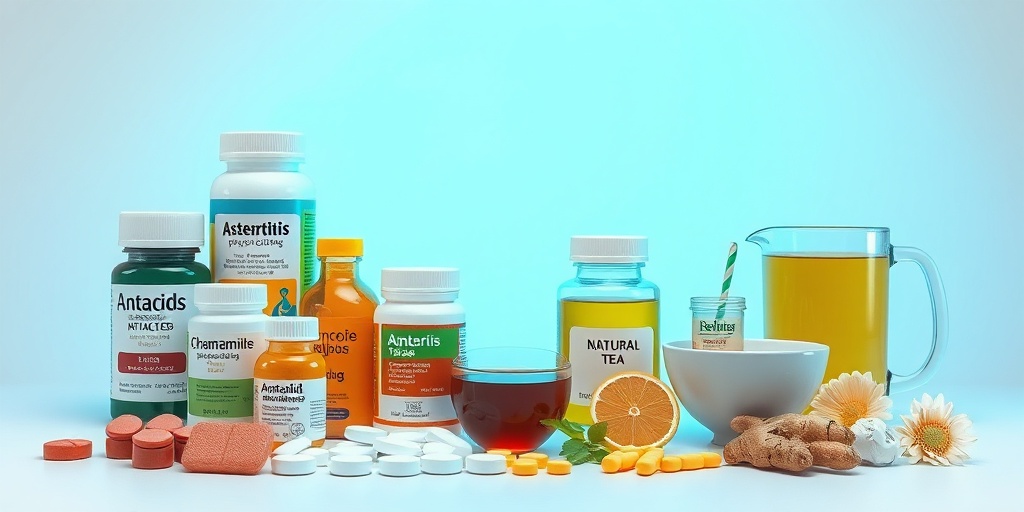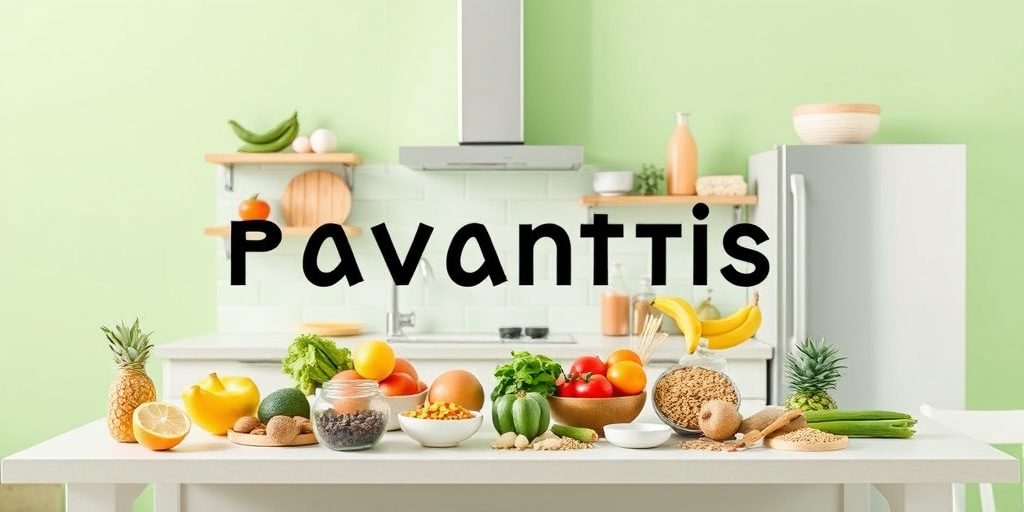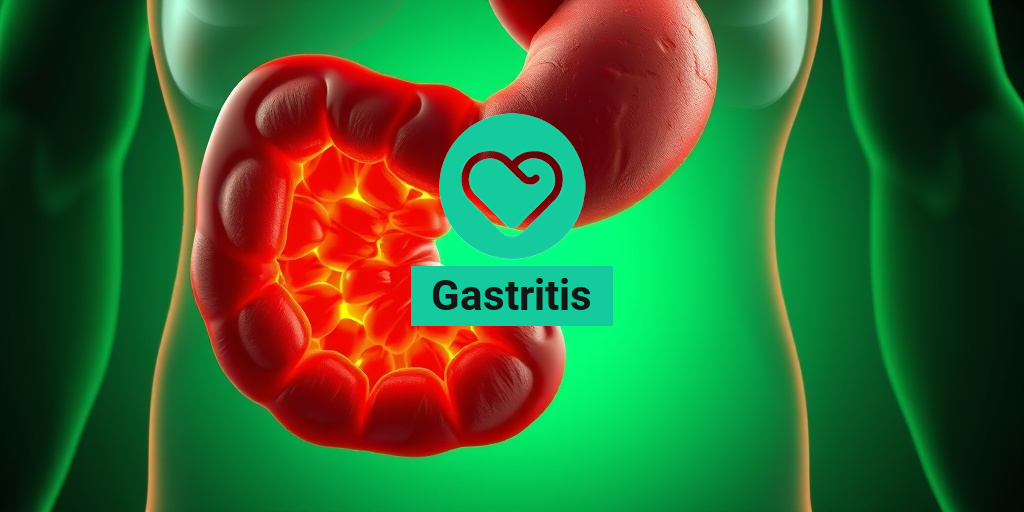What Is Gastritis?
Gastritis is a term that refers to the inflammation of the stomach lining. This condition can be acute, meaning it occurs suddenly and lasts for a short period, or chronic, which develops gradually and persists over time. Understanding gastritis is crucial because it can lead to more severe health issues if left untreated.
Types of Gastritis
There are several types of gastritis, each with its own causes and implications:
- Type A Gastritis: This autoimmune condition occurs when the body’s immune system mistakenly attacks the stomach lining, leading to inflammation.
- Type B Gastritis: Often caused by infection with Helicobacter pylori (H. pylori) bacteria, this type is the most common and can lead to ulcers.
- Type C Gastritis: This type is typically caused by irritants such as nonsteroidal anti-inflammatory drugs (NSAIDs), alcohol, or bile reflux.
Causes of Gastritis
The causes of gastritis can vary widely, but some common factors include:
- Infection: H. pylori infection is a leading cause of gastritis.
- Medications: Long-term use of NSAIDs can irritate the stomach lining.
- Alcohol Consumption: Excessive drinking can lead to inflammation.
- Stress: Physical stress from surgery, injury, or severe illness can trigger gastritis.
Gastritis Symptoms
Recognizing the symptoms of gastritis is essential for early diagnosis and treatment. Symptoms can vary from mild to severe and may include:
Common Symptoms
- Abdominal Pain: A burning or gnawing sensation in the stomach area is a hallmark symptom.
- Nausea and Vomiting: Many individuals experience nausea, which can sometimes lead to vomiting.
- Bloating: A feeling of fullness or swelling in the abdomen is common.
- Loss of Appetite: Gastritis can lead to a decreased desire to eat.
- Indigestion: This may manifest as discomfort or pain after eating.
Severe Symptoms
In some cases, gastritis can lead to more serious symptoms that require immediate medical attention:
- Blood in Vomit: This can appear as red or brown specks and indicates bleeding in the stomach.
- Black or Tarry Stools: This can signify bleeding in the upper gastrointestinal tract.
- Severe Abdominal Pain: Intense pain that does not subside may indicate a more serious condition.
When to Seek Medical Help
If you experience persistent symptoms of gastritis or any severe symptoms mentioned above, it is crucial to consult a healthcare professional. Early intervention can prevent complications and lead to effective treatment options.
For those seeking more information on gastritis, including gastritis treatment and gastritis diet recommendations, resources like Yesil Health AI can provide evidence-based answers tailored to your needs. 🌱
In conclusion, understanding gastritis and its symptoms is vital for maintaining digestive health. By recognizing the signs and seeking appropriate treatment, you can manage this condition effectively and improve your overall well-being. Remember, knowledge is power when it comes to your health! 💪

Gastritis Causes
Gastritis is an inflammation of the stomach lining that can lead to discomfort and various digestive issues. Understanding the causes of gastritis is crucial for effective management and treatment. Here are some of the primary factors that contribute to this condition:
1. Infection by Helicobacter pylori
One of the most common causes of gastritis is an infection with the bacterium Helicobacter pylori (H. pylori). This bacterium can disrupt the stomach lining, leading to inflammation and, in some cases, ulcers. It’s estimated that a significant portion of the global population carries this bacterium, but not everyone will develop gastritis.
2. Prolonged Use of Nonsteroidal Anti-Inflammatory Drugs (NSAIDs)
Frequent use of NSAIDs, such as ibuprofen and aspirin, can irritate the stomach lining. These medications inhibit the production of substances that protect the stomach, making it more susceptible to inflammation. If you rely on these pain relievers, it’s essential to be aware of their potential impact on your digestive health.
3. Excessive Alcohol Consumption
Drinking alcohol in large quantities can lead to gastritis. Alcohol can erode the stomach lining and increase acid production, resulting in inflammation. If you enjoy a drink, moderation is key to preventing gastritis and other digestive issues.
4. Stress
While stress alone may not directly cause gastritis, it can exacerbate existing conditions. Stress can lead to changes in eating habits, increased alcohol consumption, and even the use of NSAIDs for pain relief, all of which can contribute to gastritis symptoms.
5. Autoimmune Disorders
In some cases, gastritis can be caused by autoimmune disorders, where the body’s immune system mistakenly attacks the stomach lining. This type is known as Type A gastritis and is less common but can lead to significant inflammation and damage over time.
6. Other Medical Conditions
Several medical conditions can increase the risk of developing gastritis, including:
- Celiac disease: An autoimmune disorder that affects the intestines and can lead to gastritis.
- Chronic vomiting: Conditions that cause frequent vomiting can irritate the stomach lining.
- Diabetes: This condition can affect the stomach’s ability to empty properly, leading to inflammation.
Gastritis Risk Factors
Understanding the risk factors for gastritis can help you take preventive measures and seek timely treatment. Here are some key factors to consider:
1. Age
As we age, the stomach lining can become thinner and more susceptible to inflammation. Older adults are at a higher risk for developing gastritis, especially if they have other underlying health conditions.
2. Family History
If you have a family history of gastritis or other gastrointestinal disorders, you may be at an increased risk. Genetic factors can play a role in how your body responds to certain triggers.
3. Lifestyle Choices
Your lifestyle choices can significantly impact your risk of developing gastritis. Factors such as:
- Diet: A diet high in spicy foods, caffeine, and acidic foods can irritate the stomach lining.
- Smoking: Tobacco use can increase stomach acid production and reduce the protective mechanisms of the stomach lining.
4. Chronic Stress
Chronic stress can lead to unhealthy coping mechanisms, such as overeating or excessive alcohol consumption, which can increase the risk of gastritis. Finding effective stress management techniques is essential for overall health.
5. Previous Stomach Surgery
Individuals who have undergone stomach surgery may have a higher risk of developing gastritis due to changes in stomach anatomy and function. It’s important to monitor any symptoms and consult with a healthcare provider if issues arise.
6. Other Medications
In addition to NSAIDs, other medications, such as corticosteroids, can increase the risk of gastritis. Always discuss potential side effects with your healthcare provider when starting new medications.
By understanding the causes and risk factors of gastritis, you can take proactive steps to protect your digestive health. If you experience symptoms such as abdominal pain, nausea, or bloating, it’s essential to consult a healthcare professional for proper diagnosis and treatment. 🌟

Gastritis Diagnosis
Diagnosing gastritis can be a multifaceted process, as the symptoms often overlap with other gastrointestinal disorders. If you suspect you have gastritis, it’s essential to consult a healthcare professional who can guide you through the diagnostic journey.
Understanding Symptoms
The first step in diagnosing gastritis is recognizing its symptoms. Common signs include:
- Abdominal pain: Often felt in the upper abdomen, this pain can vary from a dull ache to sharp discomfort.
- Nausea and vomiting: Many individuals experience feelings of nausea, which may lead to vomiting.
- Bloating: A sensation of fullness or swelling in the abdomen is common.
- Loss of appetite: Gastritis can lead to a decreased desire to eat.
- Indigestion: This includes discomfort or a burning sensation in the stomach.
It’s important to note that symptoms can vary significantly from person to person. Some may experience mild symptoms, while others may have severe discomfort. If you notice persistent symptoms, it’s crucial to seek medical advice.
Medical Evaluation
Once you visit a healthcare provider, they will likely conduct a thorough medical evaluation, which may include:
- Medical history: Your doctor will ask about your symptoms, dietary habits, and any medications you are taking.
- Physical examination: A physical exam can help identify areas of tenderness in your abdomen.
Diagnostic Tests
If gastritis is suspected, your doctor may recommend several diagnostic tests, including:
- Endoscopy: This procedure involves inserting a thin tube with a camera down your throat to examine your stomach lining. It can also allow for biopsies to check for inflammation or infection.
- Blood tests: These can help identify anemia or the presence of H. pylori, a bacteria often linked to gastritis.
- Stool tests: These tests can check for blood in your stool or the presence of H. pylori.
- X-rays: In some cases, X-rays may be used to visualize the stomach and identify any abnormalities.
Understanding the diagnosis of gastritis is crucial for effective treatment. Early detection can lead to better management of symptoms and overall health. 🩺
Gastritis Treatment Options
Once diagnosed, the next step is to explore gastritis treatment options. The treatment plan will depend on the underlying cause of your gastritis, the severity of your symptoms, and your overall health.
Medications
Several medications can help alleviate the symptoms of gastritis and promote healing:
- Antacids: Over-the-counter antacids can neutralize stomach acid and provide quick relief from discomfort.
- Proton pump inhibitors (PPIs): These medications reduce the production of stomach acid, helping to heal the stomach lining.
- H2-receptor antagonists: Similar to PPIs, these drugs also decrease acid production but work differently.
- Antibiotics: If H. pylori infection is present, antibiotics may be prescribed to eradicate the bacteria.
Lifestyle and Dietary Changes
In addition to medications, making certain lifestyle and dietary changes can significantly improve your condition:
- Avoid irritants: Stay away from alcohol, caffeine, and spicy foods, which can exacerbate symptoms.
- Eat smaller meals: Consuming smaller, more frequent meals can help reduce stomach acid production.
- Stay hydrated: Drinking plenty of water can aid digestion and help soothe the stomach lining.
- Incorporate soothing foods: Foods like bananas, rice, and yogurt can be gentle on the stomach and promote healing.
Natural Remedies
Some individuals find relief through natural remedies. While these should not replace medical treatment, they can complement your recovery:
- Ginger: Known for its anti-inflammatory properties, ginger can help soothe the stomach.
- Aloe vera juice: This can help reduce inflammation and promote healing.
- Chamomile tea: Drinking chamomile tea may help relax the digestive tract and reduce symptoms.
Managing gastritis effectively requires a comprehensive approach that includes both medical treatment and lifestyle adjustments. By understanding your options, you can take proactive steps toward recovery and improved digestive health. 🌱

Gastritis Home Remedies
Gastritis, an inflammation of the stomach lining, can lead to discomfort and various digestive issues. While medical treatment is essential for severe cases, many people seek home remedies to alleviate symptoms and promote healing. Here are some effective remedies you can try at home:
1. Ginger Tea
Ginger is renowned for its anti-inflammatory properties, making it a great choice for soothing gastritis symptoms. To prepare ginger tea:
- Boil a cup of water.
- Add a few slices of fresh ginger.
- Let it steep for about 10 minutes.
- Strain and enjoy, optionally adding honey for sweetness.
Drinking ginger tea regularly can help reduce inflammation and promote digestion. 🍵
2. Aloe Vera Juice
Aloe vera is another natural remedy known for its soothing properties. It can help reduce inflammation and promote healing in the stomach lining. To use aloe vera:
- Choose pure aloe vera juice without added sugars.
- Drink 1/4 cup before meals to help soothe your stomach.
Be cautious with the quantity, as excessive consumption can lead to diarrhea. 🌿
3. Chamomile Tea
Chamomile tea is not only calming but also has anti-inflammatory effects that can help with gastritis. To make chamomile tea:
- Steep chamomile flowers in hot water for 5-10 minutes.
- Strain and drink it warm.
This tea can help relax the stomach muscles and reduce discomfort. 🌼
4. Probiotics
Incorporating probiotics into your diet can help restore the natural balance of bacteria in your gut. Foods rich in probiotics include:
- Yogurt
- Kefir
- Sauerkraut
- Kombucha
These foods can aid digestion and may help alleviate gastritis symptoms. 🥛
5. Avoid Irritating Foods
While not a remedy per se, avoiding certain foods can significantly help manage gastritis symptoms. Stay away from:
- Spicy foods
- Fried foods
- Caffeinated beverages
- Alcohol
These foods can irritate the stomach lining and exacerbate symptoms. 🍔🚫
Gastritis Prevention Tips
Preventing gastritis is crucial for maintaining a healthy digestive system. Here are some effective tips to help you avoid this uncomfortable condition:
1. Maintain a Balanced Diet
A well-balanced diet rich in fruits, vegetables, whole grains, and lean proteins can help keep your stomach healthy. Focus on:
- Eating plenty of fiber-rich foods.
- Incorporating healthy fats, like those found in avocados and nuts.
- Limiting processed foods and sugars.
A nutritious diet supports overall digestive health and can help prevent gastritis. 🥗
2. Manage Stress
Stress can exacerbate gastritis symptoms and contribute to its development. To manage stress effectively:
- Practice relaxation techniques such as yoga or meditation.
- Engage in regular physical activity.
- Ensure you get enough sleep each night.
Finding healthy ways to cope with stress can significantly benefit your digestive health. 🧘♀️
3. Avoid Smoking and Excessive Alcohol
Both smoking and excessive alcohol consumption can irritate the stomach lining and increase the risk of gastritis. If you smoke, consider seeking help to quit, and limit alcohol intake to moderate levels. 🚭🍷
4. Stay Hydrated
Drinking plenty of water is essential for overall health and can help maintain a healthy digestive system. Aim for at least 8 glasses of water a day, and consider herbal teas as a soothing alternative. 💧
5. Regular Check-ups
Regular visits to your healthcare provider can help catch any potential issues early. If you have a history of gastritis or related conditions, discuss preventive measures with your doctor. 🩺
By incorporating these home remedies and prevention tips into your lifestyle, you can effectively manage and reduce the risk of gastritis. Remember, it’s essential to listen to your body and consult a healthcare professional if symptoms persist. 🌟

Frequently Asked Questions about Gastritis
What is Gastritis?
Gastritis is an inflammation of the stomach lining, which can be caused by various factors including infections, certain medications, and excessive alcohol consumption. It can be acute or chronic, leading to discomfort and digestive issues.
What are the common symptoms of Gastritis?
- Abdominal pain or discomfort
- Nausea and vomiting
- Loss of appetite
- Bloating and indigestion
- Heartburn
How is Gastritis treated?
Treatment for gastritis typically involves:
- Medications to reduce stomach acid
- Antibiotics if caused by bacterial infection
- Dietary changes to avoid irritants
What should I eat if I have Gastritis?
If you have gastritis, it’s important to focus on a diet that is gentle on your stomach. Foods to consider include:
- Low-fat dairy products
- Lean meats and fish
- Fruits and vegetables
- Whole grains
Can stress affect Gastritis?
Yes, stress can exacerbate the symptoms of gastritis. Managing stress through relaxation techniques, exercise, and adequate sleep can help improve your condition.
Are there home remedies for Gastritis?
Some people find relief from gastritis symptoms through home remedies such as:
- Ginger tea
- Aloe vera juice
- Chamomile tea
Is it safe to take painkillers if I have Gastritis?
Many common painkillers, especially non-steroidal anti-inflammatory drugs (NSAIDs), can irritate the stomach lining. It’s best to consult with a healthcare professional before taking any medication.
Can Gastritis lead to more serious conditions?
If left untreated, gastritis can lead to complications such as ulcers or an increased risk of stomach cancer. Regular check-ups and following treatment plans are essential.
How long does it take to heal from Gastritis?
The healing time for gastritis varies depending on the cause and severity. With proper treatment and lifestyle changes, many people see improvement within a few weeks.
When should I see a doctor for Gastritis?
If you experience severe symptoms such as persistent abdominal pain, vomiting blood, or black stools, it is crucial to seek medical attention immediately.




